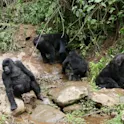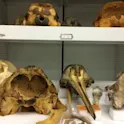
Environment
20 Apr 2022
Most read articles of March 2022: Secrets of ancient leftovers revealed and endangered shark discovered in pet food
By Colm Gorey, Science Communications Manager, Frontiers Image: Shutterstock.com Each month, Frontiers shines a spotlight on some of the leading research across a wide range of topics. Here are just some of the highlights that resonated strongly with readers on our news site in the month of March. Leftovers in prehistoric pots let scientists peek into the kitchen of an ancient civilization How do you reconstruct the cookery of people who lived thousands of years ago? Bones and plant remains can tell us what kind of ingredients were available. But to reconstruct how ingredients were combined and cooked, scientists need to study ancient cooking vessels. “Fatty molecules and microscopic remains from plants such as starch grains and phytoliths – silica structures deposited in many plant tissues – get embedded into vessels and can survive over long periods,” said Dr Akshyeta Suryanarayan, a researcher at the Universitat Pompeu Fabra in Barcelona, Spain, and co-author on a recent study in Frontiers in Ecology and Evolution. In their study, Suryanarayan and co-authors analyzed such ‘leftovers’ in Copper and Bronze Age vessels – including pots, vases, goblets, jars, and platters – from today’s Gujarat, India. “Our study is the first to combine starch grain […]




